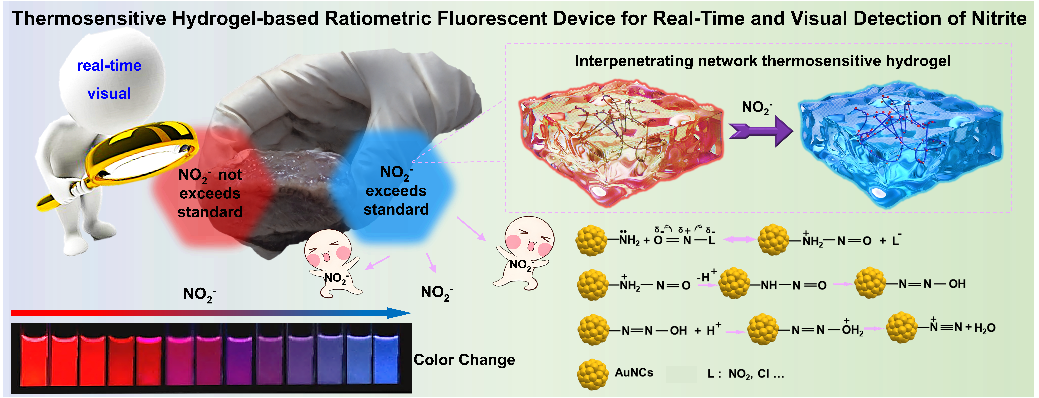
Nitrite (NO₂⁻) is commonly used as a food additive, but when ingested, it can harm the body's oxygen transport system. The World Health Organization limits NO₂⁻ to 1.0 mg/L in drinking water and 30 mg/kg in meat products. However, current nitrite detection methods are often complicated.
Recently, a team of researchers led by Prof. JIANG Changlong from Institute of Solid State Physics at Hefei Institutes of Physical Science of the Chinese Academy of Sciences, developed a novel thermosensitive hydrogel-based fluorescence probe for real-time visualization and detection of nitrite.
Results of their study were published in Journal of Hazardous Materials.
In their research, the team designed a functionalized thermosensitive hydrogel doped with fluorescent probes to make it easier to get information of NO₂⁻. They added Gold nanoclusters (Au NCs) and carbon-based dots into the hydrogel’s multi-layered structure made from P407, lignin, and cellulose, and created a material with special fluorescence properties and strong stability. The interconnected P407, lignin, and cellulose gave the hydrogel an excellent porous structure.
This Au NCs/LCG-P407 fluorescent hydrogel is expected to optimize portable and efficient device strategies. It provides a basis for further development of sensing platforms for the detection of environmental and hazardous substances in food safety.
The hydrogel sensor can also be paired with a smartphone app to visually measure NO₂⁻ in water, making detection easier and more practical.
"With this probe and a smartphone, the nitrite data is available at a glance,” said Dr. LI Lingfei, a member of the team.
This research marks advancement in hydrogel applications and highlights its potential to enhance food safety monitoring systems, according to the team.

Schematic representation of Au-NCs/LCG-P407 fluorescent hydrogel for the detection of NO₂⁻. (Image by LI Lingfei)

86-10-68597521 (day)
86-10-68597289 (night)

52 Sanlihe Rd., Xicheng District,
Beijing, China (100864)

